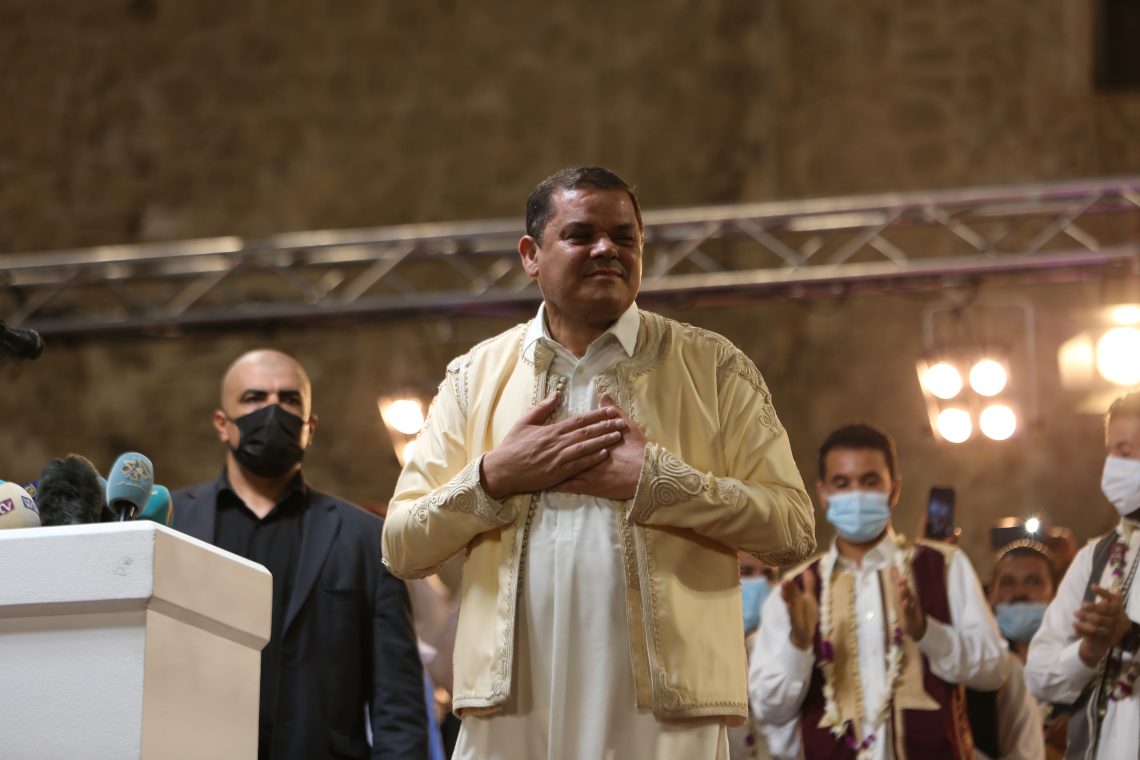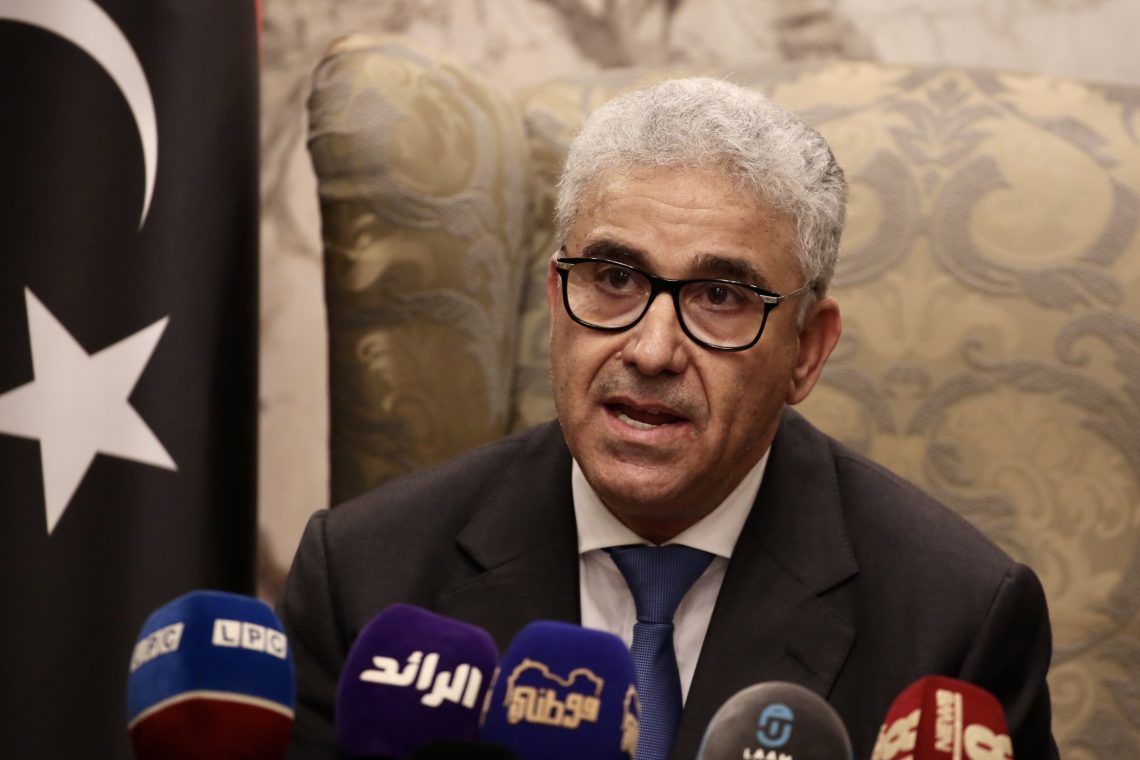Dangerous dead end in Libya
After postponing presidential elections scheduled for December, Libya finds itself in a political gridlock that could easily spark more armed clashes.

In a nutshell
- Libya did not hold elections in December as planned
- The government and the legislature have not come to a compromise
- The situation could rapidly degenerate and reignite the conflict
Ever since Libya missed its deadline to hold a presidential election on December 24, as squabbling between factions prevented the passage of a new election law and the approval of a list of candidates, the divisions within the country have only been growing wider.
Aguila Saleh Issa, the speaker of the House of Representatives (HoR), appears to be resolutely focused on blocking any moves by the Government of National Unity (GNU), chosen in March 2021 and led by Abdul Hamid Dbeibeh. The GNU was supposed to complete its mandate with the December 24 elections; the United Nations supports Mr. Dbeibeh remaining in place until Libyans can go to the polls. The rivalry between the government and the legislature is intensified by the differences between the two sides’ foreign backers. Mr. Dbeibeh is supported by Turkey and indirectly by Qatar, while Mr. Saleh Issa is primarily backed by Russia, the United Arab Emirates and Egypt. Those countries also support Khalifa Haftar, the leader of the Libyan National Army (LNA) based in Cyrenaica, who laid siege to Tripoli in April 2019.
Holding elections before disarmament, as history shows, can be a costly mistake.
Over the past two months, Aguila Saleh Issa has been moving to become independent of the UN, denouncing the futility of the organization’s actions and those of the broader international community and adopting a new road map to hold a presidential election within 14 months after agreeing on constitutional amendments. He is apparently supported by Khaled al-Mishra, Chairman of the High Council of State, a body created in 2015 after UN-backed peace talks.
The calm of the past few months has been maintained primarily by personal agreements woven together by Libya’s extraordinarily corrupt and politically immature elite. But if elections are ever held, many fear that disputes over the outcome could quickly lead to armed conflict between the contenders. The issue of disarmament has been put on the back burner; we may soon be reminded in rather dramatic fashion that it is difficult to have political stability in a country of 6 million citizens awash in more than 20 million weapons. Holding elections before disarmament, as history shows, can be a costly mistake.

The HoR’s road map proposed an internal election for a new prime minister. The leadership submitted the candidates to the High State Council for the required approvals, and on February 22 provided the name of Fathi Bashagha, the interior minister of the former government in Tripoli, the Government of National Accord. Like Abdul Hamid Dbeibeh, he hails from the city of Misrata.
Minister Bashagha is a former militia leader, and earlier ran against Mr. Dbeibeh for prime minister. He had also planned to run for president in the postponed December 24 elections. In the last few months, Mr. Bashagha has worked hard to be accepted by Field Marshall Haftar and Mr. Saleh Issa, but now must work harder to be accepted by the West. Additionally, Misrata will have a difficult choice to make between him and Mr. Dbeibeh. The question is also how he will be received in the capital: it is entirely possible that he will be rejected, particularly as the High State Council is not certain to put in the required effort.
Mr. Dbeibeh has repeatedly rejected the idea of a replacement prime minister and a new cabinet and has accused Mr. Saleh Issa of fueling divisions in the country. As a result, a few hours before the vote to replace him, gunmen attacked Prime Minister Dbeibeh’s convoy in Tripoli: he managed to survive, but without a doubt, the attack was a huge blow to Libya’s credibility with the international community. After the election in Tobruk, a crowd of Libyans gathered in the squares of Tripoli to demonstrate in his favor.
Scenarios
Growing chaos
The move by the parliament to name a new prime minister, coming on top of the assassination attempt, will likely herald a period of further instability in the struggle to rule Libya and control its wealth. It is also very probable that the HoR will not succeed in removing Mr. Dbeibeh, as several countries, the UN and most Libyans will not recognize Fathi Bashagha as the new prime minister.
Moreover, a few weeks ago, Field Marshal Haftar retook his position as General Commander of the LNA and for the short term he will most likely avoid any kind of conflict, instead consolidating his forces to get them ready for possible future wars. One of his main problems is that because the GNU in Tripoli paid most LNA salaries last year, some of them may not be so willing to take up arms against it, particularly considering the failure of the 2019-2020 siege of Tripoli.
The road to partition
Another possible scenario could be more drastic: the HoR, militarily backed by the LNA and a gaggle of mercenaries, could abandon the rhetoric of unity. Instead, it could seek to establish a separate administration in the East, strengthened by the wealth of Libya’s oil crescent – which is mainly controlled by Haftar forces – and by the support of their traditional allies, namely the UAE, Egypt and Russia. But this time France would probably be missing in action: Paris has numerous problems with Moscow connected to the Wagner Group’s increasing presence in Francophone African countries such as Mali, and the Ukrainian crisis does not help.
In either case, the Libyan shores will see chaos, instability and turmoil between the East and West, while the existing tensions between Russia and Europe will exacerbate those between different Libyan factions. Thus, foreign investments will be late to come, and the local economy will weaken even further. It is also unlikely, under either scenario, that migratory flows will decrease. In 2021 the coast guard intercepted 30,990 migrants and refugees and returned them to Libya, almost three times the total from 2020. A new UN report says there are more than 12,000 people in 27 prisons and other detention facilities, while thousands of others are being held in inhumane conditions in places illegally controlled by armed groups.








